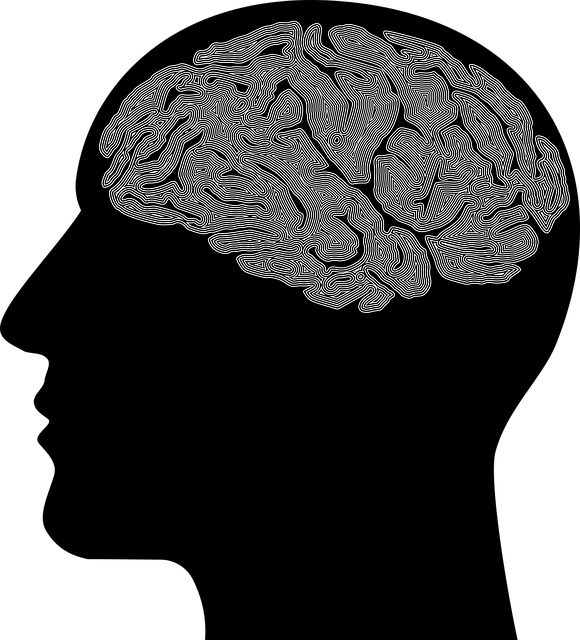Greenwood Village Hebrew Speaking Therapy's Crisis Intervention Teams (CITs) provide immediate, targeted mental health support during severe emotional distress or trauma. Trained professionals from diverse backgrounds stabilize individuals, offer long-term treatment options, and equip them with coping mechanisms, self-care routines, and trauma support services. The organization leads in CIT training, incorporating cultural competency, risk management, and emotional intelligence development to foster empathetic, effective crisis care. Through simulations, mindfulness practices, and continuous education, teams stay ready to face diverse challenges in real-world settings.
In today’s complex social landscape, crisis intervention teams (CITs) play a vital role in providing immediate mental health support. These specialized teams are crucial for addressing escalating crises and preventing tragic outcomes. This article explores the importance of comprehensive training programs for CITs, highlighting the significant contribution of Greenwood Village Hebrew Speaking Therapy. We’ll delve into essential components, practical exercises, and continuous education, all aimed at equipping teams to handle real-life scenarios effectively.
- Understanding Crisis Intervention Teams: A Vital Resource in Mental Health Support
- The Role of Greenwood Village Hebrew Speaking Therapy in Training and Community Impact
- Essential Components of Effective Crisis Intervention Team Training Programs
- Preparing for Real-Life Scenarios: Simulations and Practice Drills
- Continuous Education and Support: Ensuring Long-Term Readiness
Understanding Crisis Intervention Teams: A Vital Resource in Mental Health Support

Crisis Intervention Teams (CITs) are a vital resource in mental health support, offering immediate and targeted assistance to individuals facing severe emotional distress or psychological trauma. These specialized teams, often composed of trained professionals from various backgrounds, serve as a crucial safety net for those in need. At Greenwood Village Hebrew Speaking Therapy, we recognize the significance of CITs in enhancing access to effective mental health care.
By equipping team members with skills in crisis assessment, de-escalation techniques, and trauma-informed care, CITs can provide immediate support while connecting individuals to long-term treatment options. This proactive approach not only helps stabilize individuals during acute crises but also fosters a sense of security and empowers them to develop confidence-boosting coping mechanisms. Moreover, these programs often include education on self-care routine development for better mental health, ensuring that individuals gain the tools necessary to maintain resilience in the face of adversity. Trauma support services, an integral part of CIT training, help those affected by trauma heal and move towards a more fulfilling life.
The Role of Greenwood Village Hebrew Speaking Therapy in Training and Community Impact

Greenwood Village Hebrew Speaking Therapy stands as a beacon of hope and support within its community, specializing in crisis intervention team training programs that are both comprehensive and culturally sensitive. Their unique approach ensures that first responders and mental health professionals are equipped to handle diverse populations with varied needs. By focusing on empowering individuals through skills like depression prevention, self-care routine development, and resilience building, the therapy center plays a pivotal role in fostering better mental health outcomes.
The impact extends beyond individual lives; it ripples into the fabric of the community. Trained crisis intervention teams can swiftly navigate situations, offering immediate assistance during times of distress. This proactive measure not only mitigates potential crises but also reinforces a culture of care and resilience. Greenwood Village Hebrew Speaking Therapy’s commitment to these training programs underscores their dedication to building stronger, more resilient communities where mental health is prioritized and supported at every turn.
Essential Components of Effective Crisis Intervention Team Training Programs

Effective crisis intervention team (CIT) training programs are multifaceted and designed to equip healthcare providers with the necessary tools to navigate and manage crises in diverse settings. A comprehensive program should include several essential components, as highlighted by Greenwood Village Hebrew Speaking Therapy.
Firstly, these programs must prioritize cultural competency training, particularly when catering to a diverse population. Healthcare providers must be skilled in understanding and respecting different cultural backgrounds and beliefs, which can significantly impact crisis management. This includes learning about specific ethnic and religious practices related to mental health and crisis responses, ensuring sensitive and effective interventions. Additionally, integrating risk management planning is vital; training should equip professionals with strategies to assess and mitigate risks associated with mental health crises, fostering a safe environment for all involved. Furthermore, developing emotional intelligence is key; CIT team members should be adept at recognizing and managing their own emotions, as well as understanding and responding appropriately to the emotional states of individuals in crisis. This fosters empathetic and supportive interactions during high-pressure situations.
Preparing for Real-Life Scenarios: Simulations and Practice Drills

Preparing for real-life crisis situations is a cornerstone of effective training. Programs like Greenwood Village Hebrew Speaking Therapy integrate immersive simulations and practice drills to equip mental health professionals with valuable hands-on experience. These scenarios mimic high-pressure environments, allowing trainees to apply their knowledge and skills in safe yet realistic settings. Through such exercises, they learn to assess risk accurately using tools like the Risk Assessment for Mental Health Professionals, navigate complex situations, and implement coping skills development strategies tailored to individual needs.
Incorporating mindfulness meditation practices alongside these drills further enhances the team’s resilience. It aids in managing stress, improving focus, and fostering clear decision-making under pressure. By combining theoretical learning with practical application, these training programs ensure that crisis intervention teams are well-prepared to handle a variety of challenges, ultimately enhancing their ability to provide effective support in real-world settings.
Continuous Education and Support: Ensuring Long-Term Readiness

Continuous education is vital for crisis intervention team (CIT) members to maintain their readiness and skills. Regular training sessions, workshops, and online courses ensure that team members stay updated with the latest best practices in mental health support. These programs often include scenarios tailored to diverse communities, such as Greenwood Village Hebrew Speaking Therapy’s specialized approach, catering to cultural and linguistic nuances. By fostering a culture of continuous learning, CIT teams can adapt effectively to emerging challenges and changing demographics, enhancing their ability to respond promptly and sensitively during crises.
In addition to formal training, supporting one another through debriefing sessions and peer-to-peer mentorship cultivates compassion and resilience within the team. This internal support network encourages open communication about emotional experiences, reduces burnout, and strengthens the overall effectiveness of the CIT. Integrating depression prevention strategies, compassion cultivation practices, and public awareness campaigns development into ongoing education empowers team members to recognize signs early, offer preventive interventions, and foster supportive environments in their communities.
Crisis intervention team (CIT) training programs, such as those offered by Greenwood Village Hebrew Speaking Therapy, play a crucial role in equipping communities with essential mental health support. By understanding the unique dynamics of CITs and implementing effective training methods, including real-life scenario simulations and continuous education, we can ensure that teams are ready to effectively intervene during crises. The positive community impact of these programs, as demonstrated by Greenwood Village Hebrew Speaking Therapy’s initiatives, highlights the importance of investing in CIT training for improved mental health outcomes.









